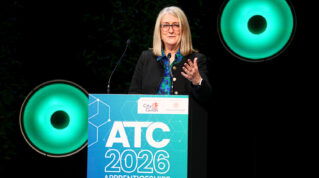A secret deal has been struck to end an 18-month legal battle between a major group of training providers and the government over a controversial adult education contract bid.
FE Week understands Learning Curve Group has agreed to withdraw its claim that the Education and Skills Funding Agency acted unlawfully when it didn’t award its seven subsidiary companies an adult education (AEB) contract in 2023.
Training providers rarely successfully challenge adult education procurement losses through the courts. Learning Curve’s apparent unprecedented win could open the door to more legal challenges from disgruntled training providers.
The case was due to go to trial later this year, with the group seeking a re-run of the 2023 adult education budget procurement evaluation, damages and costs.
Details of the settlement have not been disclosed. A re-run will not go ahead.
Learning Curve filed fresh evidence for its case in November in which it claimed its bid for a contract was not “evaluated or scored consistently with the published award criteria”.
A trial was initially due to take place in December but had been adjourned to a window between March 17 and August 1.
Learning Curve launched its case in August 2023 after its bid for a national AEB contract was rejected by the Education and Skills Funding Agency.
It centred on a dispute over a section of Learning Curve’s bids that asked for forecasts for training courses and learner numbers, known as the Q1B1 submission. DfE’s defence claimed Learning Curve’s tender “failed to provide the forecast of the number of learners per course, which is an entire deliverable asked for”. As a result, it couldn’t be awarded a contract.
Following an initial disclosure of procurement evaluation documents in November 2023, Learning Curve alleged that documents showed evaluators had initially scored its Q1B1 response as 100 – enough to be considered for a contract, but this was downgraded to 50 by “non-evaluators” that “did not apply the published award criteria”.
The DfE’s next defence admitted that the initial evaluators “failed to apply” the award criteria for that crucial question. As a result, the usual “consensus score” process, where two evaluators agree on a final score for a question, did not apply and a moderator decided the lower score.
The DfE repeatedly denied it acted unlawfully in its evaluation of Learning Curve’s bids that “deprived” the group “of a real chance of winning a contract”.
Mind the ‘minor gap’
Fresh high court documents, filed by Learning Curve in November, included new evidence it claimed backed up its argument that it was treated differently to other providers in the Q1B1 evaluation.
It included an anonymised list of 122 Q1B1 bid scores from providers’ bids and alleged each of them did not include forecast learner numbers per proposed course, a list of courses and/or breached the award criteria for another reason. Yet, each of those bids appeared to have been scored ‘good’ or ‘very good’ – enough to be considered for a contract.
The document suggests 22 of the 122 examples were awarded a contract. In one case, a score of ‘very good’ was awarded to one provider where the Q1B1 submission did not include forecasts for courses or learner numbers per course. That provider was awarded a contract.
Another example also scored ‘very good’ and was awarded a contract after submitting learner forecasts by subject and region, but not per course. In numerous other examples, missing learner forecasts were described by evaluators as “a minor gap.”
Learning Curve was approached for comment.
The Department for Education declined to comment.
















Your thoughts